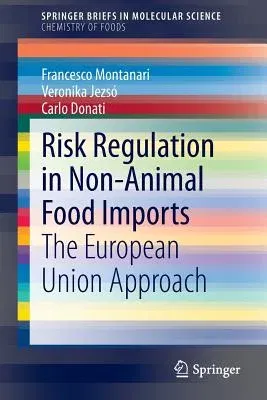Francesco Montanari
(Author)Risk Regulation in Non-Animal Food Imports: The European Union Approach (2015)Paperback - 2015, 16 February 2015

Qty
1
Turbo
Ships in 2 - 3 days
In Stock
Free Delivery
Cash on Delivery
15 Days
Free Returns
Secure Checkout

Part of Series
Springerbriefs in Molecular Science
Part of Series
Springerbriefs in Molecular Science / Chemistry of Foods
Part of Series
Chemistry of Foods
Print Length
99 pages
Language
English
Publisher
Springer
Date Published
16 Feb 2015
ISBN-10
3319140132
ISBN-13
9783319140131
Description
Product Details
Book Edition:
2015
Book Format:
Paperback
Country of Origin:
NL
Date Published:
16 February 2015
Dimensions:
23.39 x
15.6 x
0.61 cm
Genre:
European Union Studies
ISBN-10:
3319140132
ISBN-13:
9783319140131
Language:
English
Location:
Cham
Pages:
99
Publisher:
Series:
Weight:
172.36 gm